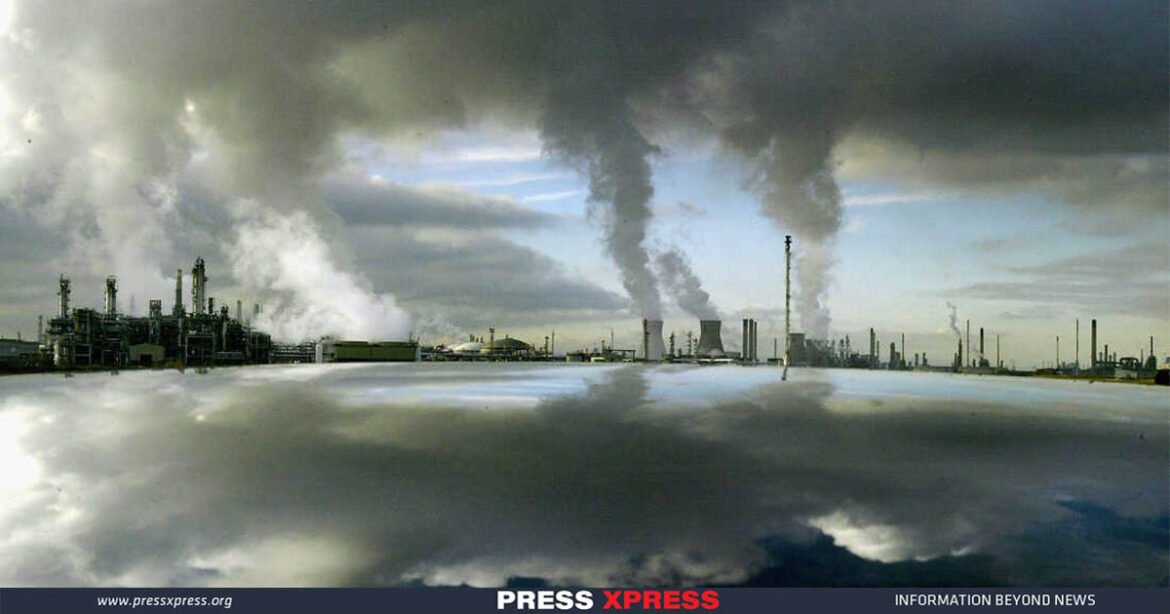World isn’t stirring fast enough to cut pollution and keep warming below 2 degrees Celsius, says UN
A recent report from the United Nations Framework Convention on Climate Change emphasizes the urgent requirement for the global community to accelerate efforts to reduce heat-trapping emissions. Time is running out as countries are nearing a critical point in preventing temperature increases that could result in more frequent and severe heatwaves, droughts, and storms.
This warning is especially relevant as we approach the upcoming COP28 climate negotiations, scheduled for early December in the United Arab Emirates. These yearly gatherings serve as a platform for nations to discuss their commitments to reducing greenhouse gas emissions. However, progress thus far has fallen short of the scale of the challenge, indicating that there is substantial work left to be done.
You can also read: Impacts of Climate Change on Bangladesh’s Resettlement Programme
A critical component of COP28 will involve conducting a ‘global stocktake,’ which will assess how quickly nations worldwide are making progress toward the emissions targets outlined in the Paris Agreement. This assessment plays a vital role in the collective effort to mitigate the increasing temperatures of our rapidly warming planet.
The Paris agreement
Climate change is a pressing global crisis that transcends national boundaries, necessitating collaborative efforts and coordinated solutions on a global scale. Recognizing this imperative, world leaders convened at the UN Climate Change Conference (COP21) in Paris on December 12, 2015, where they achieved a momentous breakthrough: the historic Paris Agreement.
The Paris Agreement establishes ambitious long-term objectives to guide the actions of all nations:
- Significant Emission Reduction: The agreement calls for substantial reductions in global greenhouse gas emissions, with the overarching aim of constraining the rise in global temperatures within this century to 2 degrees Celsius. Furthermore, it urges efforts to limit this temperature increase even further, to 1.5 degrees Celsius.
- Regular Commitment Review: Countries are obligated to periodically revisit and enhance their commitments to address climate change. A key feature the requirement for nations to review and update their climate goals every five years
- Financial Support for Developing Nations: The Paris Agreement underscores the need to provide financial support to developing countries. This assistance is geared towards helping these nations mitigate the effects of climate change, enhance their resilience, and bolster their capacity to adapt to climate-related challenges.
Surging greenhouse gases eclipse Paris agreement gains
The current global situation shows improvement compared to the 2015 outlook when the Paris Agreement was established to curb emissions. At that time, the world was projected to warm by 3 degrees Celsius. Although emissions have plateaued in certain countries, they continue to rise on a global scale. In 2022, greenhouse gas levels reached their highest recorded concentrations, surpassing pre-industrial revolution levels by a staggering 50 percent.
Climate Alarm: Urgent Action Needed to Prevent Catastrophic Warming
Climate experts are sounding the alarm, stressing the imperative of limiting global warming to 1.5 degrees Celsius (2.7 degrees Fahrenheit). Surpassing this critical threshold would lead to perilous consequences, including the submergence of coastal cities due to rising sea levels, the near-extinction of coral reefs, and a heightened frequency of extreme weather events. Presently, the world is heading towards approximately 2.5 degrees Celsius of warming.
To avert this scenario, the UN report issues a stark warning, asserting that emissions must decrease by 43 percent by 2030 and by 60 percent by 2035, relative to 2019 levels. Ultimately, the world must achieve net-zero carbon dioxide emissions by 2050, implying that any ongoing emissions must be counterbalanced by removal from the atmosphere, either through natural processes like plants and ecosystems or through human-made technologies.
Ani Dasgupta, the president of the nonprofit World Resources Institute, emphasized the significance of the report, characterizing it as a wake-up call to address the injustice of the climate crisis. He added that it offers leaders a tangible blueprint, supported by a substantial body of evidence, to guide effective action.
Renewable energy’s crucial role in achieving net-zero emissions
The report highlights the rapid growth of renewable energy, underscored by the decreasing costs of solar and wind power, as well as nations elevating their renewable energy targets. It emphasizes the pivotal role of renewables, suggesting they could contribute up to three-quarters of the emissions reductions required to achieve a net-zero goal.
However, it also raises concerns about the slow decline in emissions from coal. As per an Intergovernmental Panel on Climate Change (IPCC) report, coal emissions must decrease by 67–82 percent by the end of this decade to align with climate goals.
What is COP28?
COP28 in the UAE represents a significant milestone for global collaboration, offering a crucial opportunity to unite, make necessary adjustments, and accelerate our environmental progress. This conference will place a strong emphasis on an inclusive approach to climate action, ensuring that no one is left behind.
At the core of all endeavors during COP28 are the fundamental principles of transformation, solidarity, pragmatism, and inclusivity. It is imperative that this COP serves as a platform for tangible action and is accessible to all.
COP28 UAE is scheduled to take place from November 30 to December 12, 2023, at Expo City in Dubai, United Arab Emirates.
Who can participate in COP28?
COP28 UAE is set to be a momentous and highly anticipated global event in 2023. Serving as the paramount platform for making critical decisions on climate matters, this conference anticipates the participation of more than 70,000 attendees. Their aim is to foster agreement and advance climate action discussions, bringing together representatives from 198 countries, the European Union, and an array of non-governmental organizations, corporations, youth organizations, and various stakeholders.


